Episodes
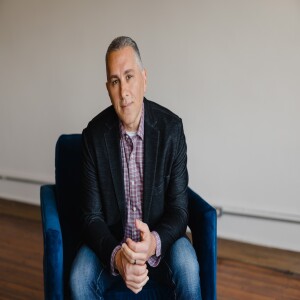
Tuesday May 21, 2024
Tuesday May 21, 2024
When John Pavlovitz's new book Worth Fighting For: Finding Courage & Compassion When Cruelty is Trending, landed on my desk I was intrigued by the title. Given that trolling on socials, nastiness on the news, and day-to-day unkindness to one another seem to be the norm, there isn't any way to argue that cruelty is not the currency of the day. So a book on reconnecting to compassion felt like a gift to my soul.
John and I spoke about what we, as a society, need to do and our concerns about the repercussions of not healing the divides that we currently face. John gives us simple actions that we can take to bridge those divides and expand our own capacity for kindness and compassion.
In a time when there is heartbreaking news every day it is deeply inspiring and nourishing to reconnect with the compassion that is our greatest human strength.
For a written transcript of this conversation click here.
About John:
John Pavlovitz is a writer, pastor activist and storyteller from Wake Forest, North Carolina. Over the past decade, his thought provoking blog Stuff That Needs To Be Said, has reached a diverse worldwide audience with over 100 million views. A 25-year veteran in the trenches of local church ministry, Pavlovitz is committed to equality, diversity and justice, both inside and outside faith communities. John's books include A Bigger Table, and If God is Love, Don't Be a Jerk. His new book, Worth Fighting For: Finding Courage and Compassion When Cruelty is Trending arrived on April 2. He currently directs Empathetic People Network, a vibrant online community that connects people from all over the world who want to create a more compassionate planet.
John's Action Steps:
1) Identify and lean into the burden.
2) Find a partner or collaborator
3) Take one measurable step with them, then another and keep going.
Connect with John:
SubstackWebsiteInstagramThreadsFacebook
Credits:
Harmonica music courtesy of a friend
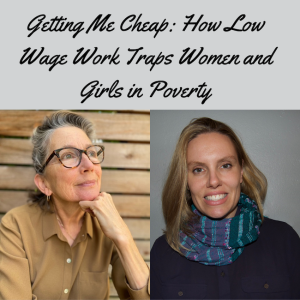
Monday Apr 01, 2024
Monday Apr 01, 2024
All too often we think about, or more accurately don't think about, the ripple effects of low-wage work on families beyond the thought that things must be tight. In this conversation, based on their important book, Getting Me Cheap: How Low Wage Work Traps Women and Girls in Poverty, Lisa Dodson, Amanda Freeman, and I discuss the implications not just in the present but in the future for those trapped in this deeply unjust cycle.
When we think about who is providing the childcare, the elder care, the cleaning services and more that we rely on to keep life functioning in the ways we are accustomed to, it is often women being paid unlivable wages. But many of these women themselves have families and if they aren't there to fulfill the adult role because they are, often, working multiple jobs to make ends meet, the brunt of filling that gap falls to their children, usually the girls.
Dodson and Freeman explore the stories of the women they met, their realities, struggles, and aspirations, as they challenge us to confront and change what is a deeply unjust and flawed system in order to break the generational cycle of poverty and of parents who, as Dodson and Freeman describe, can't afford to buy their children a childhood.
This conversation made me think in deeper and different ways about the impact of societal inequities and, once again, made me question whether these are bugs or features.
It's an important book that leads us into an important conversation, one that challenges us to live into our oft-stated values around cherishing our children, not just some of them, all of them.
About Amanda Freeman and Lisa Dodson:
Amanda Freeman is a sociologist with research interests in poverty, social policy, gender, family and education. Her current work explores work family conflict for low income mothers. At the University of Hartford, Professor Freeman teaches a variety of courses including Social Welfare.
Lisa Dodson is Research Professor Emeritus at Boston College. She's the author of the books, The Moral Underground: How Ordinary Americans Subvert an Unfair Economy, and Don't Call Us Out of Name. She lives in Portland, Oregon.
For a written transcript of this conversation click here.
Action Items:
From Amanda:1) If you have people working in your home become aware of their lives, their struggles, and just engaging with them as fellow human beings.2) Join organizations that advocate for domestic workers.3) Challenge inequitable policies in your workplace that treat salaried and hourly workers differently when it comes to issues such as parental leave.
From Lisa:
1) Have conversations about how these workers are compensated and treated in the workplace.2) Listen to what these women have to say about their lives and the challenges they are facing and then do what we can to address the inequities that they are facing.
Credits:
Harmonica music courtesy of a friend.
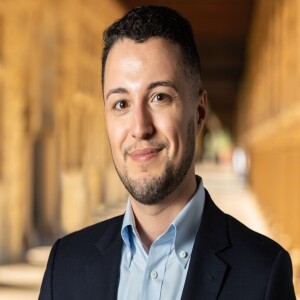
Tuesday Feb 06, 2024
Tuesday Feb 06, 2024
When I first heard about Engage and Evade: How Latino Immigrant Families Manage Surveillance in Everyday Life, Asad L. Asad's brilliant exploration of how undocumented people navigate living in the U.S. I thought that I had a pretty good understanding of the situation. I did not.
The experience of living undocumented in the U.S., particularly in southern border states, is a unique dance of engagement and evasion as Asad lays out. In reading his book, and in this conversation, I found myself both frustrated at the ever-changing (but never resolved) immigration system and with a whole new level of respect for people who, for myriad reasons, come here at great risk to themselves and then find a place that is nowhere near as welcoming as it should be.
As the battle rages in Congress about what to do about the southern border this conversation could not be more timely.
About Asad L. Asad
Asad L. Asad is Assistant Professor of Sociology at Stanford University, and a faculty affiliate at the Center for Comparative Studies in Race and Ethnicity. Asad's research considers how institutional categories in particular citizenship and legal status matter for multiple forms of inequality. His book, Engage and Evade: How Latino Immigrant Families Manage Surveillance in Everyday Life examines how, and why, undocumented immigrants who are worried about deportation, navigate the delicate dance of engaging with certain government institutions while avoiding others. Using stories from undocumented immigrants themselves Asad brings nuance to the perspective of the undocumented and shines a light on some of the contradictions between what the government says they want, and the economic and personal realities of the immigration system as it applies to Latinos.
For a written transcript of this conversation click here.
Action Items:
1) Volunteer with Freedom For Immigrants, which helps people who are currently in immigration detention, to make phone calls to people outside of the walls of the detention facility. And that is just so important to just give people who are detained the opportunity to just be a regular person to some degree, to interact with people who are not detained, who are outside, who can communicate messages, who can field complaints, and so on, and so forth.
2) V I S T A. It stands for the Villanova Interdisciplinary Immigration Studies training for Advocates. It's an online program that trains students to become immigrant advocates,
3) I always suggest that people, if they have the opportunity and means, donate to a bond fund. And so there are local bond funds that I always I always tried to promote in the Bay Area, we have the Bay Area Immigration Bond Fund, which helps people who have been granted bond in immigration court, but who can't afford the $5 to $10,000 bond, because that's an unreal amount of money. And so contributions monthly, yearly would go a long way. And you can also find one, listeners, wherever you are, in your local community, again, with our dear friend, Google, just type in, you know, Milwaukee immigration bond fund, and it would pop up.
Credits:
Harmonica music courtesy of a friend.
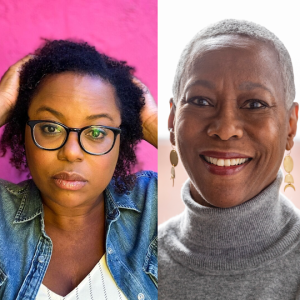
Tuesday Oct 17, 2023
Tuesday Oct 17, 2023
Kat Calvin & Omkari Williams
Kat Calvin and I both wrote books! Kat's is American Identity In Crisis: Notes from an Accidental Activist. Mine is Micro Activism: How You Can Make a Difference in the World (Without a Bullhorn).
When we realized that our books were coming out within weeks of each other we thought that we should have a conversation about them and the work we do in the world.
Kat's work is getting the 26 million Americans who don't have ID the state issued ID that they need to do things like get a job, a home, a bank account, you know, little things like that. Mine, if you don't know, is getting folks to engage in micro activism, tiny actions that add us to big changes.
In this conversation we not only talk about serious things but we also laugh, a lot. I loved this conversation and I think you will too.
Definitely, buy both our books. They are really good! We did not write them together, though the covers do coordinate beautifully and the themes do have a lot of crossover. Holiday gifts, yeah!!!
Have you met Kat?
About Kat:
She's been a guest on the podcast before, but in case you haven't met her, let me tell you about her. Kat Calvin is the founder and executive director of Spread The Vote + Project ID and the cofounder and CEO of the Project ID Action Fund. A lawyer, activist, and social entrepreneur, she has built a national organization that helps Americans obtain the IDs they need for jobs, housing, life—and in some states, the voting booth. Kat and her work have been featured in the New York Times, the Los Angeles Times, The Washington Post, The Atlantic, and on NPR, PBS, BET, and many other outlets. She has been a guest commentator on MSNBC, CNN, Headline News, Sirius XM, and more, as well as a frequent keynote speaker and a sought-after voice for her expertise and opinions on politics, voting, ID-related issues, and more.
For a written transcript of this episode click here
Connect with Kat:Project IDInstagram
Credits:Harmonica music courtesy of a friend.
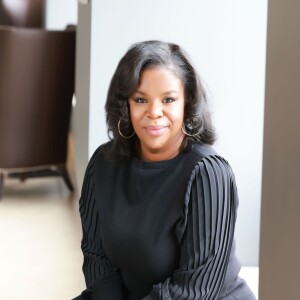
Tuesday Sep 12, 2023
Tuesday Sep 12, 2023
Often, when we think about racial justice immediately following the Civil War we think about a relatively narrow slice of Black history. Blair LM Kelley's Black Folk: The Roots of the Black Working Class shines a light on stories that we don't hear enough about.
Drawing on stories from her own family and extensive research Blair tells us a compelling tale of Black folk beginning to claim their place in America as free people.
With stories of washerwomen, Pullman Porters, and other Black workers who fought for rights for themselves, started unions, and paved the way for the modern Civil Rights Movement Blair had me captivated from the start.
The richness of her book is reflected in the richness of the conversation that we had. Both educational and inspirational, this is a conversation you don't want to miss.
About Blair:
Blair LM Kelley, is an award winning author, historian and scholar of the African American experience. A dedicated public historian Kelley works to amplify the histories of black people, chronicling the everyday impact of their activism. Kelley is the Joel R. Williamson, Distinguished Professor of Southern Studies at the University of North Carolina Chapel Hill, and the incoming Director of the Center for the Study of the American South, the first black woman to serve in that role in the center's 30 year history. Kelly's newest book, Black Folk: The Roots of the Black Working Class, draws on family histories and mines the archive to illuminate the adversities and joys of the Black working class in America, both past and present.
For a written transcript of this conversation click here.
Action Items:
1) Buy and read Blair's book.
2) Spend time in "third spaces". Spaces outside of work and home where we can be in community and invest in one another.
3) Continue to learn about our past and advocate for broader education in our schools as well as in alternative and community learning spaces. Let this book be the beginning of a conversation that expands our knowledge and understanding of this important part of American history.
Stay in touch with Blair:
Instagram
Credits:
Harmonica music courtesy of a friend.
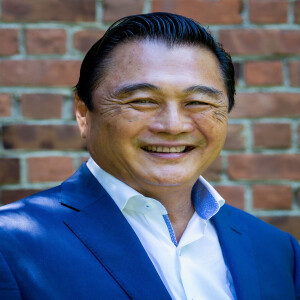
Wednesday Jun 21, 2023
Wednesday Jun 21, 2023
David Mura
If I am a broken record on any subject it's probably on the impact of story and how the stories we tell to ourselves and others shape our understanding of the world. In his powerful book, author David Mura, writes about some of the stories that underlie the American experience.
With examples from literature and film David explores and important perspective in our fight for racial justice. If we don't know how the biases we hold are the storyline of our society it's gonna be impossible to rewrite those stories.
Reading David's book, and then speaking with him, was a fascinating exploration of some of our deepest stories as a society and how we are being held back because we don't even know that they are the scripts running the action.
This conversation gave me a whole other level of insight into the struggle for racial equity and has inspired me to question more deeply some of the things I just assume to be so.
I loved this book and this conversation and I think you will also.
About David:
David Mura has written numerous books. His most recent book is the acclaimed The Stories Whiteness Tells Itself: Racial Myths and Our American Narratives. A third generation Japanese American, Mura has written two memoirs, Turning Japanese: Memoirs of a Sansei, which was listed in the New York Times notable books of the year, and, Where the Body Meets Memory: An Odyssey of Race, Sexuality, and Identity. In addition to teaching at various universities, Mura has served as director of training for the innocent classroom, a program designed by writer and educator Alexs Pate, to train K - 12 teachers to improve their relationships with students of color.
For a written transcript of this conversation click here.
Connect with David:
WebsiteTwitterFacebookInstagram
Action Items:
1) None of us knows enough. We all have pockets of ignorance, and we have to keep learning. So it is simply just books, lectures, activities, arts activities, to learn about people, both within your community and outside your community.
2) if your social life or your work life is racially or ethnically homogenous, you need to start diversifying and making conscious moves to diversify. And if you're a white person and you have no Black friends or friends of color, then you have to ask, why is that? How can you change your life so diversity becomes a part of it?
3) Once you understand the way racism works, you have to begin to work against it, and actively work and often time times you'll know you're working against it when people get angry.
Credits:
Harmonica music courtesy of a friend.
BIG NEWS!!!
My book, Micro Activism: How You Can Make a Difference in the World (Without a Bullhorn) is now available for pre-order from your favorite bookseller.
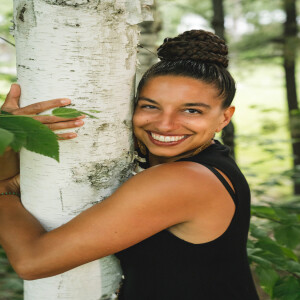
Tuesday May 16, 2023
Tuesday May 16, 2023
Leah Penniman
In 2018 Leah Penniman wrote Farming While Black, a beautiful book recounting her experience of building Soul Fire Farm and, also, a guide for other Black and Indigenous people looking to reconnect to the land. Now Leah has compiled a treasure trove of conversations that she's had with other Black people who work in harmony with the Earth. Black Earth Wisdom brings together the voices of these leaders in service of guiding us all to a deeper connection with the land, with it's place in all of our lives, and the necessity of rebuilding the connection to Earth that, for far too many of us, is broken.
This is my second time talking with Leah and I can't overstate how much I learn from her and value both her wisdom and her generosity in sharing what she has learned with all of us.
In this conversation Leah and I talked about the relationship we can have with the Earth, the racist history of our National Parks, Dr. George Washington Carver, and expanding our time perspective.
This conversation left me feeling so uplifted and committed to forging a deeper connection to the Earth itself. I think it will do the same for you. Listen, and enjoy.
About Leah:
Leah Penniman is founding Co-Executive Director and Farm Director of Soul Fire Farm in Grafton, New York, an Afro-Indigenous farm that works toward food justice and land justice. Her books Farming While Black and Black Earth Wisdom are love songs for the land and her people.
For a written transcript of this conversation click here.
3 Actions:
1) Center the voices and leadership of the people most impacted by environmental injustice.2) Anytime there's an opportunity to advocate for policies that support Black farmers, such as the Justice for Black Farmers Act, that support farm workers, such as the Fairness for Farmworkers Act, anything that supports rights of nature, land back for Indigenous people, reparations for Black people, we need to be sending those letters, calling, be in the streets to support that type of change.3) We have a chance to get to know our neighbors, not just the people neighbors, but the amphibians, and the trees and the flowers and the mosses. Get to know their names, spend some quiet time listening, sing them a song of gratitude. And in rekindling that relationship with the Earth, we are almost guaranteed to fall in love. And when we fall in love, we are almost guaranteed to defend and protect.
Connect with Leah:
Soul Fire Farm
Farming While Black
Black Earth Wisdom
Instagram
Credits:
Harmonica music courtesy of a friend
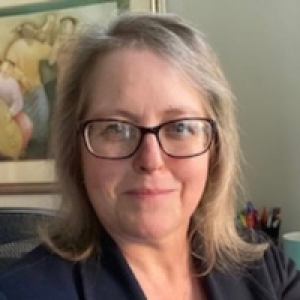
Wednesday Apr 12, 2023
Wednesday Apr 12, 2023
:Debilyn Molineaux
Have you ever wished for an unmistakable sign of the direction you should be going in? I know I have. For Debilyn Molineaux, President and CEO of Bridge Alliance that sign set her on a path to work towards healing the divides that are ripping at the fabric of the United States.
In this conversation Debilyn and I talk about where we are as a country, how we get out of the mess that we're in, and about the experience that shifted the work that she does in the world.
What if the critical piece of healing what ails us is as simple, not easy, but simple, as listening to one another so that we can begin to find common ground and, at the least, understand one another? What if the tools that we need to build unity, rather than deepening the divisions that exist, are already available to us?
In an increasingly fractured and polarized world it is on each of us to do what we can to shrink the divide, not widen and solidify it. In this important conversation Debilyn gently challenges all of us to be better listeners, to grant others the grace we would want for ourselves, and to actively participate in our democracy beyond voting.
After speaking with Debilyn I felt more hopeful and more empowered. Positive change is possible, we just have to be willing to put down our personal armor long enough to make a connection with someone coming from another perspective.
About Debilyn:
Debilyn Molineaux is a long-standing leader of organizations working towards American healthy self governance. In 2015, she co-founded the Bridge Alliance, where she remains President and CEO. Bridge Alliance is a coalition of over 100 member organizations bridging electoral reform, policymaking, and media. Debilyn and her full time staff helped these organizations exercise their collective power, share best practices, and uncover opportunities for collaboration.
Debilyn's, deep knowledge of the healthy self governance field, extensive ties to movement leaders, and hard won field experience put her in a unique position to advise, mentor, and lead large scale healthy self governance initiatives.
For a written transcript of this conversation click here.
Action Items:
1) Go to citizenconnect.us and get engaged.2) Find a way to fully share of yourself. Whether it's with a friend, family member or stranger where's there's no social capital at risk, find a way to share your story.3) Make sure that whatever you're putting out on social media and also in your relationships is adding to the future you want to see in the world, not adding to the fear and division.
Connect with Debilyn:
Citizen ConnectBridge Alliance
Credits:Harmonica music courtesy of a friend.
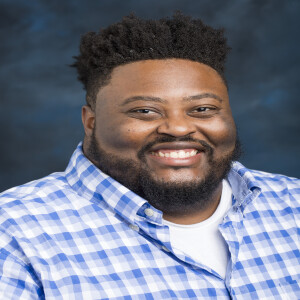
Tuesday Mar 14, 2023
Tuesday Mar 14, 2023
Shaun Marq Anderson
Given how little we are taught about Black history in general it's not surprising that most of us, me included, have relatively little knowledge of the role that Black athletes have played in the social justice movement before the late 20th century. But since the Reconstruction Era Black athletes have been pushing the envelope, trying to move us towards justice and equity.
Shaun Marq Anderson and I talked about the history of Black athlete activism and how the Sports Justice Movement has been evolving over the years as well as his new book, The Black Athlete Revolt. From Black jockeys who first raced in the Kentucky Derby to Colin Kaepernick and the Black Lives Matter movement Black athletes have used their voices and public platforms to address inequities. From the flamboyant to the subtle the movement has been as diverse as the athletes participating in it.
As Black athletes refuse to follow Fox anchor Laura Ingraham's directive to "shut up and dribble" their impact in their communities and the larger world continues to grow.
This conversation was not only informative but fun as Shaun told me about some real characters in the history of Black athletes. Have a listen, I think you'll really enjoy it.
For a written transcript of this conversation click here.
About Shaun:
Shaun Marq Anderson, is a global authority on sport and social responsibility Shaun says that sport is a microcosm of society, a catalyst for conversations about business, politics, racial injustice, environmental sustainability, and other pressing social issues. Shaun researches these contemporary problems in the context of sport to determine the most effective strategies and methods to solve them. As a consultant, he has used his work to help renowned brands such as Nike, ESPN, and Major League Baseball on their social responsibility initiatives.
Action Steps:
1) Reach out to retired athletes taking action on causes that you care about and explore how you might connect with them. A lot of these athletes are becoming the liaison in their teams' community development arm.
2) What are the specific policy reforms that are currently being discussed that you can add your voice to with letters to the editor, letters to your legislators, and/or raising community awareness of the conversations that are happening around legislative changes.
3) Pay attention the intersecting issues of race and gender and support women's teams in their fight for justice.
Connect with Shaun:
https://twitter.com/ShaunMarqSpeaks
https://www.instagram.com/shaunmarqspeaks/
Credits:
Harmonica music courtesy of a friend.
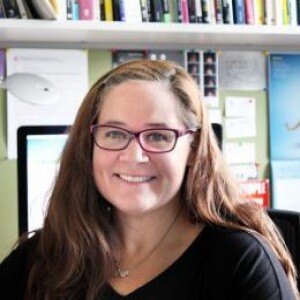
Tuesday Feb 14, 2023
Tuesday Feb 14, 2023
Allison Butler
We hear a lot about Critical Race Theory, as we should. But what about Critical Media Literacy? Have you ever even heard the term? I hadn't. Then I read The Media and Me: A Guide to Critical Media Literacy for Young People. Not to quibble with the authors but really, this isn't only for young people. This is for all of us.
We're taking in so much information from so many media sources and yet we rarely, if ever, stop to think about what those sources are, their agendas, and what that means for what we're hearing and reading. Allison Butler and her co-authors take this on and lay out a path to being far more savvy about what we hear so that we are making thoughtful decisions about what we choose to engage with and how, rather than just buying everything they're selling without looking behind the curtain.
This conversation gave me so much insight into looking behind the scenes so that I am less vulnerable to being taken in by something that seems reasonable but, upon closer investigation, isn't what it appeared to be at all.
In this time of instant "news" it's more important than ever that we pay attention and interrogate what we're told rather than just accepting it. Allison lays out some clear and simple ways that we can become media literate. Ways that will make us better able to engage with all that's coming at us.
For a written transcript of this conversation click here.
About Allison:
Allison Butler is a senior lecturer and director of the media literacy certificate program in the Department of Communication at UMass Amherst. She is the author of Educating Media Literacy: The Need for Critical Media Literacy and Teacher Education. She is the co-author of the open source text, Critical Media Literacy and Civic Learning: Interactive Explorations for Students and Teachers. She's also co-authored the new book, The Media and Me: A Guide to Critical Media Literacy for Young People.
Action Steps:
1) Recognize that this is not hopeless. It's easy to feel overwhelmed. Start by looking at your own language. Part of what we're doing is examining power so instead of "Googling" something and using Google's (a huge, powerful corporation) language, think about just searching for something.
2) Slow down. Don't just scroll, take a bit of time to read more deeply.
3) Take a break. Turn off notifications. Get your news like back in the old days, when there was a morning paper and an evening paper rather than being inundated all day long.
Connect with Allison:
Mass Media Literacy
Credits:
Harmonica music courtesy of a friend.



